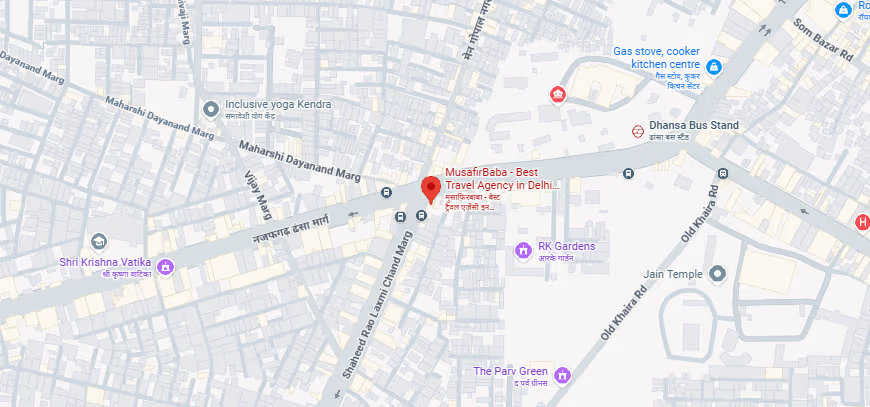Tourist Taxes 2026: 7 New Charges That Could Make Your Holiday Cost More

Travelling in 2026 could get pricier as several countries introduce new tourist taxes. Here are seven charges every traveller should know to plan their holiday budget wisely.
Tourist taxes in 2026 are spreading across popular destinations. You will face small extra sums on stays, entries, ports, or flights. These charges aim to protect places and pay for local services. You must check fees before you book and add them to your budget.
Why 2026 Is A Turning Point For Travel Fees
Many places are dealing with record visitor numbers, and 2026 is the year when most governments will finally act on it. Cities and islands say they cannot manage large crowds without extra money, so new fees help them support cleaning, transport, and local services.
You will notice more rules because many popular spots reached their limits during the recent travel boom. Leaders want steady visitor flow instead of sudden spikes that strain the area.
This is why more regions introduce fixed charges, entry fees, and hotel levies at the same time. The goal is to keep tourism steady without letting pressures grow beyond control.
7 New Destination Fees Making Global Travel More Costly In 2026
Fees will change your trip price in 2026. Some cities and islands add charges to control crowds and fund services. This guide lists the countries with the biggest changes. Read it and know what to check before you pay.
1. Edinburgh Will Add A Nightly Room Charge
Edinburgh will add a percentage fee on paid rooms in 2026. You will pay a small share of your room cost for short stays. If you visit during a festival, the extra grows. Always check the city council page and your booking for the final price. The Edinburgh visitor tax appears in many bookings now.
2. Greece Will Charge Cruise Passengers
Greek islands have a disembarkation charge for cruise visitors. The fee varies by port and season. You will pay the cost when you leave the ship, or it will appear on your ticket. Port upgrades and crowd control use this money. The Greece cruise fee shows on ferry and port websites.
3. Thailand Will Collect A Fixed Entry Fee
Thailand will add a flat arrival charge that most visitors must pay. Part of the fee covers basic visitor insurance. The rest goes to tourism projects. If you cross borders often or hold a work permit, you may be exempt. The Thailand entry fee appears at border control or in the visa details.
4. Japan Will Introduce Tiered Lodging Levies
Some Japanese cities will require a tiered per-night lodging charge based on hotel class. You will pay more at higher-end hotels and less at smaller inns. Popular cultural spots may add small site fees to protect heritage areas. The Japan accommodation tax will show up at checkout.
5. Norway Lets Regions Add Small Percentage Charges
Norwegian regions may add a small percentage to overnight stays and select cruise visits. This rule targets high-pressure sites and islands. You will see the surcharge in coastal and rural areas that need trail and facility repairs. The Norwegian tourist charge will appear on invoices and ferry tickets.
6. Venice Keeps Charging Day Visitors
Venice will keep a day visitor fee during peak months. If you visit just for the day, you must buy a timed entry ticket or pay on arrival. The fee helps control numbers and maintain canals. The Venice day visitor fee appears on booking portals and at entry points.
7. Spain Raises Regional Hotel Levies
Regions in Spain will raise hotel surcharges over the coming years. Catalonia and the Balearic Islands are among the first to increase nightly levies. You will notice higher room totals at checkout. Spain regional tax appears when you book and at hotel check-in.
How These Fees Hit Your Wallet
Expect total travel costs to increase by a few per cent. Add five to ten percent to your budget for local levies. A weeklong family stay at taxed locations adds up fast. Small per-night taxes and per-person port fees multiply across people and nights. You must read price breakdowns and confirm what a package covers.
Simple Steps To Avoid Surprise Bills
Check the official tourism site of each place you plan to visit. Choose shoulder seasons to avoid peak day levies. Book stays that show full price at checkout. Pick longer stays at one property if per-night levies apply. Choose tour operators that list taxes up front. Ask your travel agent to confirm which charges they cover. Carry small cash for on-site fees that do not accept cards.
What To Check Before You Pay
Find the exact rate and rules for exemptions on official pages. Keep booking confirmations that state whether a tax is included. Ask hotels, cruise lines, and tour operators if the charge appears at booking or at arrival. Compare the total price across sites. If a site hides taxes, call the provider and save the answer.
Why Governments Add These Fees
Officials say these sums fund public toilets, cleaning, repairs, and visitor facilities. Some charges support emergency medical cover for tourists. Others pay for measures that reduce crowd pressure on fragile places. You should view a small fee as a local contribution that keeps places healthy for future visits.
Quick Cost Examples You Can Use
A city break with two people for three nights can add a small nightly levy per room. A cruise shore stop may add a fixed sum per passenger. A day trip to Venice might add a modest entry fee. These examples show how fees change a family holiday's total cost. Make a short table on your phone to tally nightly and per-person fees before you buy.
How To Keep Travel Affordable
Book full-price packages where taxes are included. Travel off-peak to avoid day levies. Use regional passes that fold site fees into one cost. Choose smaller towns and less taxed regions when you need to save. If you travel often, check who qualifies for exemptions.
Final Thought
You will spot the 2026 tourist taxes when you pull the final bill. Watch how travel tax countries update rules and how the new travel rules for 2026 change booking flows. Track international travel charges and global tourism tax moves to plan better. Favor sustainable tourism 2026 options where fees fund local care.
Scan lists of European tourist fees before an EU route. Use budget travel tactics to lower costs and pick lower tourist levy destinations when you must. Read about eco travel trends to choose trips that reinvest fees into services and nature. The fees are small per person but large in total. Plan, add a buffer, and travel without surprise bills.
Last Updated: February 20, 2026
Loading categories...

.webp&w=256&q=75)




